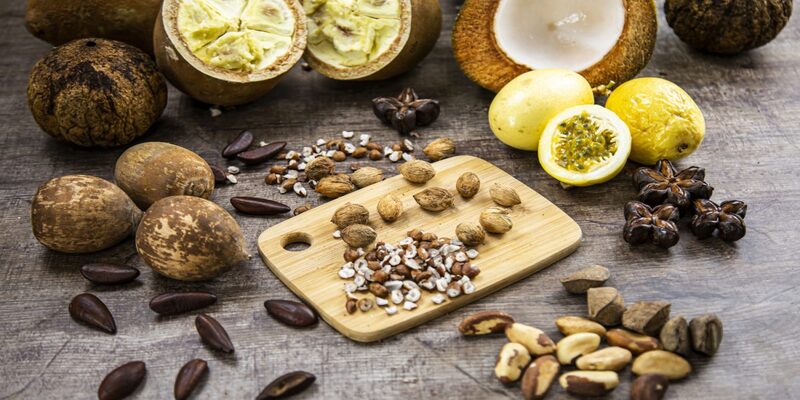Biodiversity Ingredients
Attentive, consumers look not only for organic products, but also for reliability and ethics
*By Lilia Kawazoe
There was a time when we blindly believed in the manufacture of products, or that we didn't give due importance to the planting and harvesting of the inputs that generate the final items we buy. But, as everything evolves, so do consumers and, with that, we started to demand from the Food and Beverage Industry more transparency, ethics and sustainability in business.
Proof of this is that, according to the Associação de Promoção dos Orgânicos (Organis), in the first half of 2020, the sale of products grew more than 50% in Brazil. According to the Ministry of Agrarian Development (MDA), the national organic production has been growing more than 20% a year and the consumer is willing to pay more for this difference.
The rising numbers show that we are talking about a market that requires needs, opportunities and, above all, innovation. What does that mean? That several other aspects are being valued in products by consumers. According to the Brasil Food Trends 2020 report, there is a strong direction towards the consumption of safe and quality products, which give more confidence to the customer.
Also according to the Brasil Food Trends 2020 report, food trends are based on five pillars: 1. Sensoriality and Pleasure / 2. Health and Well-being / 3. Convenience and Practicality / 4. Reliability and Quality / 5. Sustainability and Ethics.
This shows that society is becoming more aware, looking for information and worrying about questions about origin, credibility, quality seals and guarantee of origin. From the moment peopole started reading labels, they learned to value risk control and good social and sustainable practices, with products that promote health and well-being.
In this regard, I state that, current consumers are concerned about the environment and are looking for goods and companies that contribute to a better world, with actions such as reducing greenhouse gases (GHG) and carbon emissions, the absence of animal testing or mistreatment, the use of recycling practices, in addition to direct work with small rural communities or in remote areas of Brazilian biodiversity.
As the commercial manager of Concepta Ingredients, a business unit of the Sabará Group, I proudly say that our company is fully aligned with sustainable practices, aiming to minimize its footprint. We actively work for practices such as circular economy, water reuse and conservation of local flora and fauna, in addition to being the first industry in the chemical sector in Latin America to issue green bonds.
When it comes to food, the report explains that the trend towards health and well-being has generated the need for adaptations in companies in the sector, in order to meet the growing demand for healthier food, including the nutritional and caloric value of meals. As a supplier to the food industry for over 20 years, our mission is to deliver carefully selected ingredients to attend industries in the food sector that are looking for innovative, tasty, sustainable and functional products.
Today, for example, we produce the Organic Liquid Sugars range (muscovado and demerara), with ingredients that do not have any type of chemical additives, artificial components or pesticides. Muscovado sugar, for example, does not undergo any type of refinement, preserving the minerals and phytosterols from sugarcane. Demerara sugar, on the other hand, is less refined than standard sugar, ensuring the presence of the nutrients in sugarcane.
We also offer the Vegetable Oils range, such as Brazil Nut Oil, Virgin Coconut, Coco Licuri, Sacha Inchi, Toasted Babaçu, Passion Fruit and Açaí Oil, which are free of chemical additives or solvents and can be used in the most diverse applications, from breads, cakes, sweets or even direct use in salads.
Today I can say that, more than assuring the commitment to the continuous improvement of processes and products, our expectation for plant-based production growth is at least 20% for the next few years. It does not stop there. With the Sociobiodiversity Enhancement Program, we offer organic and exotic ingredients, supported by the training of families and conservation of environmental risk areas in different biomes in Brazil, avoiding deforestation. Thus, we can already celebrate the achievement of having 69 communities directly involved in the processing and collection of the value chains, conserving 875,000 hectares of forest.
These examples are just to show that we all have a lot to learn and who have been teaching us this are the consumers themselves. It is our duty to provide quality ingredients based on ethics and responsibility. We must work hard to put together innovation, health, well-being and sustainability to achieve customer satisfaction, meeting their needs and expectations. And, finally, you need to be aware. Industries that do not work in accordance with the movements of “sensory and pleasure”, “health and well-being”, “convenience and practicality”, “reliability and quality”, “sustainability and ethics” will be discarded over time.
*Lilia Kawazoe, commercial manager of Concepta Ingredients, a business unit of the Sabará Group, which has a vast portfolio with several options for the food industry, including products from Brazilian Biodiversity and Organic Ingredients.


